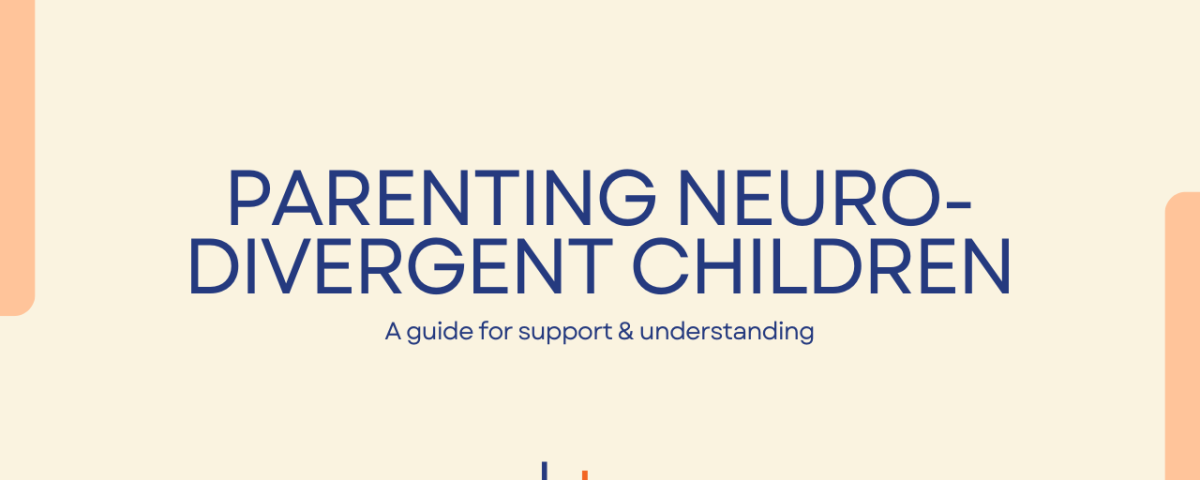Parenting Neurodivergent Children in Helensvale
Parenting a neurodivergent child—whether they have autism, ADHD, dyslexia, or another developmental difference—can be both deeply rewarding and challenging. Every child’s brain works in its own remarkable way, and with the right understanding and support, families can help their children flourish.
For parents in Helensvale and the wider Gold Coast community, it’s vital to know that you’re not alone. This guide from CBT Professionals explores how to support your neurodivergent child at home, at school, and in the community, while also caring for yourself as a parent.
Understanding Neurodivergence
Neurodivergence refers to natural variations in how people think, learn, and process information. It encompasses a wide range of experiences, including autism spectrum disorder (ASD), attention-deficit/hyperactivity disorder (ADHD), dyslexia, dyspraxia, and sensory processing differences.
Every neurodivergent child is unique. Some may struggle with communication or focus, while others excel in creativity, memory, or problem-solving. Recognising and celebrating these strengths helps your child feel valued and supported.
Common characteristics of neurodivergent children include:
- Sensory sensitivities to noise, light, or touch
- Strong interests or deep focus on specific topics
- Difficulty with transitions or unexpected changes
- Challenges with emotional regulation or social interactions
By understanding these traits, parents can create a more supportive and predictable environment for their child to thrive.
Creating a Supportive Home Environment
A nurturing home sets the foundation for emotional security and growth. Here are several ways to make your home a calm and empowering space:
1. Communicate with Empathy
Encourage open, patient conversations. Ask questions, listen actively, and validate your child’s feelings. This builds trust and helps your child develop confidence in expressing themselves.
2. Tailor Learning Approaches
Each child learns differently. Some respond better to visual aids, others to hands-on experiences or structured routines. Collaborate with teachers and specialists to create an Individual Education Plan (IEP) that reflects your child’s unique learning style.
Explore our Child Psychology Services in Helensvale
3. Create Sensory-Friendly Spaces
Design areas where your child can retreat and recharge. Soft lighting, comfortable textures, or calming colours can help regulate sensory input. Simple tools like weighted blankets, noise-cancelling headphones, or fidget aids can also make a big difference.
4. Focus on Strengths and Achievements
Celebrate your child’s successes, no matter how small. Reinforcing effort rather than perfection builds resilience and self-esteem. When children see that their strengths are valued, they become more open to learning and self-expression.
5. Connect with Community and Support Networks
Helensvale offers various community resources, workshops, and parent support groups dedicated to neurodiversity. Connecting with others who share similar experiences can provide emotional relief, practical advice, and a sense of belonging.
Learn more about our Workshops and Parent Support Options
Emotional Wellbeing for Parents
Caring for a neurodivergent child can sometimes feel overwhelming. Parents often juggle therapy appointments, school meetings, and daily routines while managing their own emotions.
Remember: You cannot pour from an empty cup. Taking care of your mental health is not selfish—it’s essential for your family’s wellbeing.
Here are a few strategies to support yourself:
- Seek professional help: Speaking to a psychologist for parents in Helensvale can help you manage stress and develop positive coping strategies.
- Practice self-compassion: Remind yourself that you’re doing your best, even on difficult days.
- Set realistic expectations: Progress looks different for every child—celebrate each milestone, no matter how small.
- Build your own support system: Friends, family, or online communities can offer encouragement when you need it most.
At CBT Professionals, we also provide parent coaching and therapy to help you strengthen your emotional resilience and parenting confidence.
The Role of Professional Support
Working with a qualified child psychologist in Helensvale can help families better understand neurodivergence and develop effective strategies tailored to their child’s needs.
Our clinicians can assist with:
- Comprehensive autism and ADHD assessments
- Individual and family CBT therapy sessions
- Emotional regulation and behaviour management strategies
- Collaboration with schools and teachers to support inclusive learning
Discover our Comprehensive Assessment and Therapy Services
Embracing Neurodiversity in Helensvale
Helensvale and the broader Gold Coast region are home to a growing network of professionals, educators, and support groups dedicated to embracing neurodiversity. From inclusive playgrounds to community workshops, families have more opportunities than ever to find connection and understanding.
By promoting awareness and inclusion, we can help all children—neurodivergent and neurotypical alike—feel accepted for who they are.
Frequently Asked Questions (FAQs)
1. How do I know if my child is neurodivergent?
If your child shows differences in attention, communication, or learning that seem persistent, consider speaking with a child psychologist in Helensvale. They can provide a developmental assessment and practical recommendations.
2. What kind of therapy helps neurodivergent children?
Cognitive Behavioural Therapy (CBT), play therapy, and social skills training are all effective for developing emotional awareness, resilience, and confidence.
3. Can neurodivergent children succeed in school?
Absolutely. With personalised learning strategies, teacher collaboration, and emotional support, neurodivergent children can thrive academically and socially.
4. How can parents access local support?
Reach out to your child’s school counsellor, local community centres, or trusted clinics like CBT Professionals Helensvale for tailored guidance and referrals.
Take the Next Step
Parenting a neurodivergent child is a journey—one that can be filled with growth, learning, and connection. You don’t have to walk it alone.
At CBT Professionals Helensvale, our team of compassionate psychologists specialise in helping families navigate neurodiversity with confidence and care.
Book a consultation today to start building a more supportive and balanced family life.
Helensvale Homeworld
(07) 5551 0251
Book Online
Disclaimer: This article is for informational purposes only and is not a substitute for professional medical or psychological advice. Always seek support from a qualified health professional.
THREE CONVENIENT LOCATIONS
MOUNT GRAVATT
Mt Gravatt Medical PrecinctSE 105, 1808 Logan Rd
Upper Mount Gravatt QLD 4122


